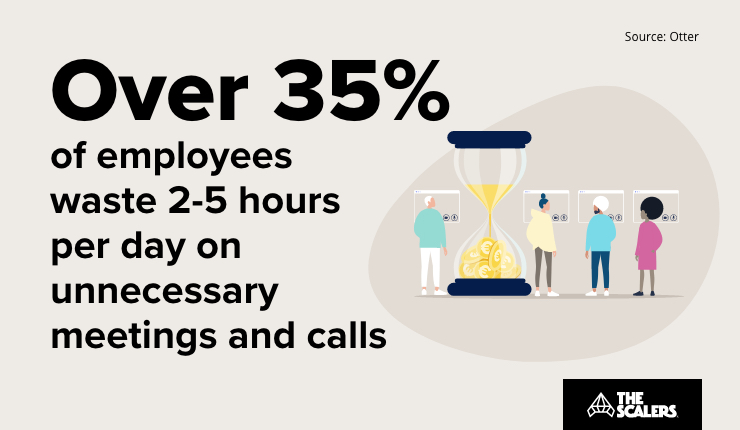5 tips to handle time zone differences with offshore teams

Modern globalisation has brought with it many incredible benefits — access to new cultures and markets, innovative technologies, and higher standards of living. However, one benefit that has become increasingly popular in recent times is the opportunity to work with distributed teams.
Today, you can hire diverse talent from across the globe without worrying about geographical limitations. For example, you can successfully manage your offshore development team in India, Ukraine, or The Philippines, all from the comfort of your local office in London. That’s the level of flexibility that distributed teams bring.
While the advantages of offshoring far outweigh the cons, one factor that is often a challenge for businesses is the time zone difference. If not managed strategically, collaboration with teams across different time zones can affect employee productivity and dampen their spirits.
As experts in building the best offshore development teams for our partners, we’ve learnt a few tips and tricks along the way to handle time zone differences with offshore teams. If you work with a distributed workforce, then here are five strategies that you can start implementing right away!

Your crash course on everything offshoring. What is it? How does it work? Is it for you?
DOWNLOAD EBOOK1. Practice smart hiring
The people you hire have a massive impact on how you handle time zone differences with offshore teams.
Let’s say you have a local development team in New York and an offshore team in Ukraine that takes care of Quality Assurance. If your remote team cannot work under minimal supervision and needs your help every step of the way, then the average time to complete testing automatically increases. And with a time difference of roughly seven hours, this means trouble. That’s why it’s important to hire reliable and skilled software developers who are self-motivated and can manage their time efficiently.
At The Scalers, the engineers we hire for our partners aren’t just technically vetted. They go through a 7-step recruitment process where their communication skills, ability to work independently, organisation skills, aptitude, and problem-solving ability is assessed. We also ensure that they are 100% aligned, on board, and instilled with your company DNA. Only the top 1% of engineers make the cut with us — individuals who are more than capable of working in a distributed environment across different time zones.

2. Build an asynchronous communication strategy
Video conferencing and voice calls are great ways to interact and work with your team. However, if you want to handle time zone differences with offshore teams, then you need to embrace asynchronous communication — a practice that will help you be mindful of your employees’ work hours, time zones, and work engagements.
Simply put, asynchronous communication is communication that doesn’t happen in real time. Informational or instructional videos, project management tools, reference guides, emails, and intranets are some of the commonly used asynchronous tools.
Establishing an asynchronous communication strategy allows your offshore team to set their own schedules, absorb and act on information on their own time, and reduces expectations of an immediate response to non-urgent tasks. It’s a tried-and-tested approach to efficiently collaborate with your team, irrespective of their location or time zone.

Increase innovation and deliver at speed in the Silicon Valley of Asia
LEARN MORE3. Invest in time zone management tools
Do you find yourself constantly doing time zone math when scheduling meetings and catch-up calls with your distributed team?
If the answer is yes, then a better way to handle the time zone differences with offshore teams is by using a time zone management tool. Here are some of our top picks:
- Timezone.io: With its easy-to-use interface, Timezone allows you to keep track of the local time in the cities where your team members are located, allowing you to plan meetings and calls easily.
- World Clock Meeting Planner: As the name suggests, this application allows you to enter multiple locations and view the time there so you can schedule transnational meetings in a jiffy. Simple but very effective.
- World Time Buddy: With widgets and mobile app integrations, World Time Buddy allows you to compare your local time with three or more cities.

4. Use agile practices
If handling time zone differences with offshore teams and bridging the culture gap is a challenge, consider adopting agile practices. Using agile methodologies in remote teams boosts team performance, increases project visibility and ensures that everyone is on the same page.

For instance, you can divide tasks into sprints and assign them to different team members. All tasks can be tracked by using modern project management tools like Trello, Jira, or Asana. You can also hold regular meetings such as a daily scrum call, sprint planning, and retrospective meetings so that every team member is aware of what needs to get done and who’s in charge of it.
This allows them to work independently without waiting for approval or help from another colleague in a different time zone.

How we helped a fintech establish a dedicated development centre in Bangalore
DOWNLOAD CASE STUDY5. Embrace flexibility
The best way to handle time zone differences with offshore teams is to simply be okay with a flexible schedule at certain points of the day.
Because your distributed team can’t just turn up at your desk for a quick chat or reach out to you for a query in real time, establish schedules that are convenient for them, irrespective of where they’re located.
This can be something as simple as switching a weekly meeting to make sure that it doesn’t interfere with another colleague’s work engagement or jumping on a quick call without having to schedule a time for it. Let your team know that you are available during your work hours if they need to reach out to you for a priority task, a check-in, or a quick chat — it doesn’t always have to be on the calendar.
To know more about how we build offshore development teams in India, simply get in touch by filling out the contact form. Our team is always happy to field any questions that you might have.














